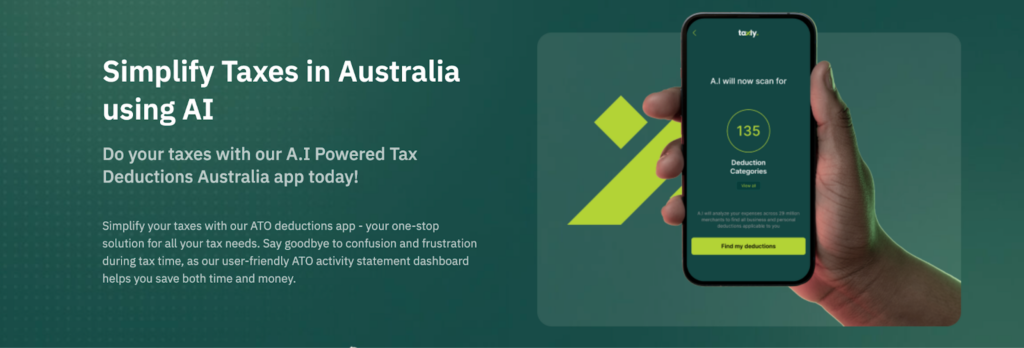Many of us use our personal vehicles for work related travel. Similarly, many of us may need to travel for attending short business meetings or staying overnight to attend business events. During business trips, employees incur certain expenses which can be claimed as business trip tax deductions.
Jaxon, our go-to business related tax expert, will help you navigate through the complex work-related tax deduction guidelines set by the ATO. Whether you use your personal vehicle for work related travel or you use other means to travel and conduct business activities, you can claim business related travel expenses in both situations.
Before we dive into the specifics of work related travel claims, we need to understand who is eligible for a business trip tax deduction.
You must meet the following criteria in order to claim business trip tax deductions:
- Your employer has not reimbursed business travel expenses
- The expenses should be related to the work activities
- Your claim falls under ATO eligible travel related deduction categories
Business Trip Tax Deduction – Using Your Car for Work
Many of us use our car for business travelling. You can not claim a deduction for using your car to go to the office from your home (unless you carry work equipment).
You can claim personal vehicle expenses such as fuel, maintenance, insurance and toll under the following conditions:
- Using your car for work-related trips like client meetings, business events, conferences
- Using your car to go from your home office to another work location such as a client’s office or a temporary project site
- Making business related deliveries of tools or supplies in your car
- Carrying business tools and equipment in your car to your workplace
Related Read: Work from Home Tax Deduction In Australia: Check Your Eligibility
When Can You Claim Business Trip Tax Deduction?
Overnight Business Travel:
If you or your employee are staying overnight during business travel, you can claim deductions for expenses incurred during that time.
You can claim deductions for attending business conferences, seminars, or industry-specific events. These events must support the primary business activities.
Temporary Work Assignments:
When you are temporarily assigned work away from your regular workplace, you can claim travel tax deductions. This applies when you are temporarily shifting to a different location and travelling to the project site.
Travelling to Multiple Business Locations:
If your visit various business locations in a day or over a period of time, you can claim these travel expenses. It will include transportation costs, meals, and any other expenses directly related to your business activities during those visits.
Self-Employed Professionals:
Self employed professionals like freelancers or consultants can also claim travel tax deductions. If you travel for business activities, such as meeting clients, attending meetings, or scouting new opportunities, you can claim these expenses.
In Short, You Can Claim The Following Business Travel Expenses:
- Airfare for business-related trips.
- Accommodation Expenses for hotels, motels, or other business related travel lodging.
- Transportation Costs include train, tram, bus, taxi, or ride-sharing fares.
- Car Rental Fees for business travel.
- Personal Vehicle Expenses for business travel. You claim fuel, tolls, parking fees, and maintenance costs.
- Meals during overnight stays during work-related stays. ATO imposes certain limitations for specific meal deductions.
- Checked Baggage Fees or additional luggage you carry on your business trip.
- Communication Costs such as internet and mobile phone bills.
- Event Registration Fees for attending business-related conferences, seminars, or workshops.
- Business Supplies Expenses for stationery or equipment.
- Laundry and Dry Cleaning Costs during your business trip.
- Business-related Entertainment costs during client meetings or internal activities.
- Professional Services Fees are paid to consultants, translators, or other professionals.
- Tax agent visitation costs.
Which Expenses You Can Not Claim as Business Trip Deduction?
You can not claim expenses for the following categories:
- Personal Travel Expenses.
- Non-Work-Related Entertainment Costs.
- Family or Friends’ Travel Expenses.
- Souvenirs and Gifts Costs.
- Traffic Fines and Penalties
- Personal Travel Insurance Premiums.
- Commuting Expenses to go from home to your regular workplace.
- Lavish and unreasonable Meal Expenses during business trips.
- Pre-Business Startup Travel Costs.
- Personal Travel Upgrades.
Important To Things to Remember About Employment Allowances
If your employee is giving you work-related travel meals and accommodation allowances, then you can not really claim these expenses on your tax return. Most people believe that they can claim a reasonable amount from their expenses, but that’s not how it works. ATO closely scrutinizes work related accommodation and meal expense claims. ATO may penalize you for inaccurate claims provided your employer has given you work related allowances or expense reimbursements.
Two Common Methods for Claiming Business Trip Tax Deductions
Let’s talk about the two widely used methods for calculating business trip tax deductions. There are two ways you can claim eligible work related travel expenses:
Standard Cents Per Kilometer Method
ATO uses the standard and simplified Cents Per Kilometer method for business trip tax deduction calculation. Under this method, you can claim a fixed rate per kilometre of business travel.
You can claim up to a maximum limit set by the ATO for the current financial year.
For example, in the 2022-2023 financial year, the ATO rate was 72 cents per kilometre.
The best thing about this method is, you don’t need receipts!
However, you will need to explain the method you used to determine the business trip kilometres travelled to the ATO.
Travel Logbook
The logbook method is a little more time-taking and requires more diligent record-keeping. However, accurate travel logbook records can lead to significant tax deductions.
ATO requires you to keep a work-travel diary or logbook if:
- Your Vehicle expense deductions exceed the ($5000) limit under the Cents per Kilometre Method.
- You are a sole trader or business partner travelling for more than 6 consecutive nights
The logbook represents a continuous work-related travel record for up to 12 weeks.
After the initial 12-week period, the logbook data remains valid for up to 5 years.
You will need to start a new logbook to fix inaccuracies or make changes.
Here is how the logbook method works:
- Keep a logbook for a continuous 12-week period. Record all your business journeys during this time. Log the starting and ending odometer readings for each business trip.
- After the 12-week period, calculate the proportion of vehicles for business use. You can do this by comparing the total business kilometres travelled to the total kilometres driven during that time.
- Apply the calculated business-use percentage to all your vehicle expenses (such as fuel, servicing, insurance and depreciation) for business related use for the entire year.
Keep accurate records of all expense receipts and invoices for all your motor vehicle expenses. This record will serve as evidence to support your claims during your annual tax return.
Suggested Read: How Long Does Tax Return Take in Australia?
Here is Another Simpler Method
Hire a registered tax agent to help you gauge your travel related claims eligibility. Alternatively, you can use an AI-powered tax app to keep track of your work related travel expenses and see eligible deductions.
Taxly.AI works as your personal and business related tax assistant. Use it to keep detailed work related travel records and track your expenses for accurate tax returns.

How to Claim Employee Travel Expenses – ATO Conditions and Guidelines
A business must pay for an employee’s travel expenses in order to claim the corresponding business trip deduction. It means that employees must not be paying for business travel expenses out of their pocket.
There are three ways in which a business can pay employee travel expenses:
- Directly pay expenses to employees in their business account
- Pay employees in the form of a travel allowance
- Reimburse the employee for work related travel expenses
Is Your Business Liable to Fringe Benefits Tax (FBT)?
Fringe benefits tax (FBT) may apply when your business pays for or reimburses employee travel expenses.
Certain exemptions and concessions can reduce a business’s FBT liability. For example, you don’t need to worry about FBT if you reimburse an employee for their travel expenses related to attending a work conference. Why? Because the employee could have claimed this under business trip deduction expense during their income tax return.
When may be liable for FBT?
If an employee extends their travel for personal reasons and you reimburse them for those private costs, you could be liable for FBT. So, keep your business and personal expense records separate!
Company directors who pay for employees’ private expenses should be aware of Division 7A’s implications.
Different considerations apply if you pay a living-away-from-home travel allowance to your employees,
Here Are The Key Takeaways
Keep detailed records of travel related expenses, such as receipts, invoices and odometer logs to claim travel related expenses.
You can claim business trip deductions using two standard methods: the Cents per Kilometre Method and the Logbook Method. You can claim business-related airfare, transportation costs, accommodation, meals (for overnight stays), and certain other work related expenses.
Keep in mind that not all expenses incurred during travel are eligible for tax deductions. Personal expenses, non-work-related entertainment, and family or friends’ travel costs are generally not deductible.
When claiming employee travel expenses, the business must actually pay for the expenses to be eligible for deductions. If a business pays for an employee’s personal expenses during extended business related travel, you may be liable to Fringe Benefits Tax (FBT).
Always keep your personal and work related travel expense record separate to avoid any tax inaccuracies and penalties.
Related Links: How do I Find my Tax File Number in Australia?



Comments are closed